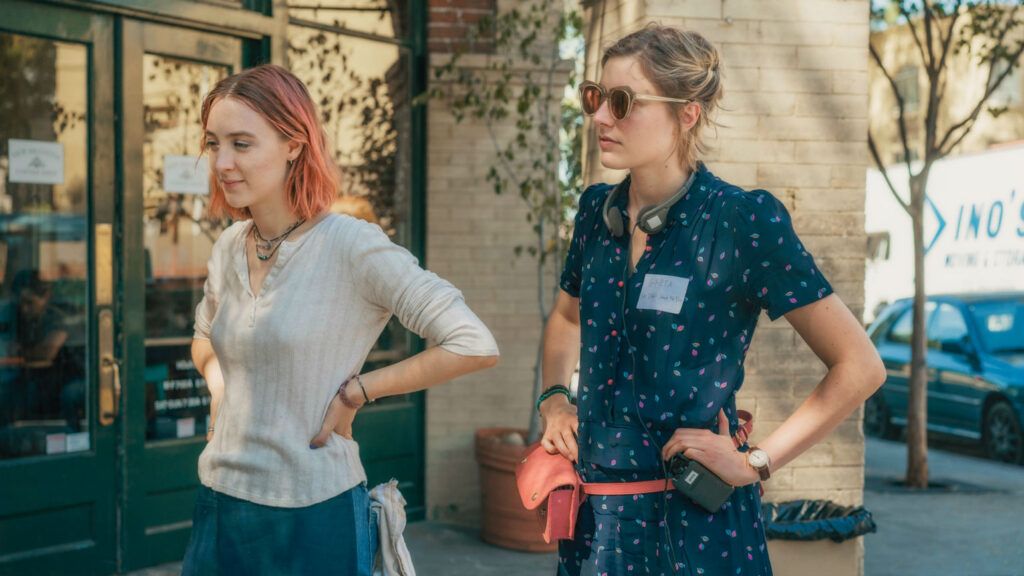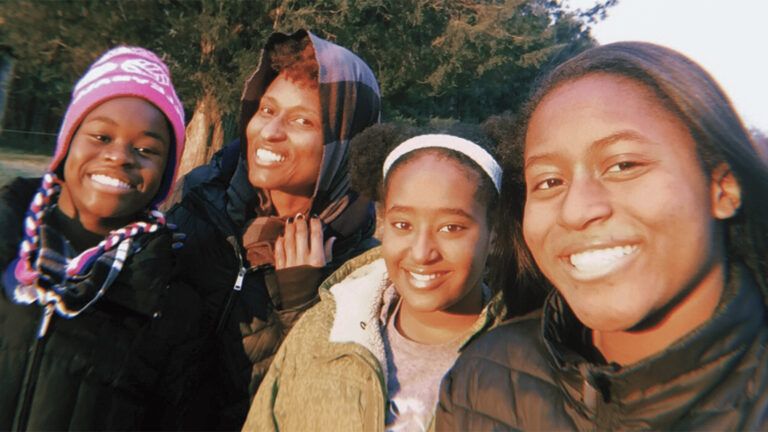Greta Gerwig is a name you’ll be hearing quite a lot of very soon.
The director’s first feature-length film, Lady Bird, recently became the best-reviewed film on the review aggregation site, Rotten Tomatoes – a feat in and of itself – and has also earned her a handful of Golden Globe nominations that have only stoked the Oscar buzz surrounding the small indie project.
For Gerwig, the recognition is just a kind of white noise – the kind that’s nice to hear but that doesn’t change the way she feels about the movie, which follows a young woman struggling to break free of her hometown and the familial bonds that tie her there.
“It was such a labor of love,” Gerwig tells Guideposts.org of shooting the film, which stars Saoirse Ronan as the titular character Lady Bird and Laurie Metcalf as her mother, Marion. “I loved making this movie, and it’s meant so much to me, how it’s connected with so many different kinds of people.”
One of the reasons it’s already made such an impact is because Gerwig decided to focus her feminine coming of age tale not on first loves but on the relationships that are more meaningful, and more complicated, like the one Lady Bird has with her hometown of Sacramento, which just so happens to be Gerwig’s as well.
“I knew I wanted to write a film about home, and the way home is something that only comes into focus as you’re leaving it,” Gerwig explains. “The way that you love it, and what’s beautiful about it is hard to see while you’re in it, particularly when you’re a teenager. I wanted that to be the core of it.”
Much of the film sees Lady Bird fight against her upbringing in beautiful, suburban California. Her family lives paycheck to paycheck after her father loses his job and becomes depressed;her mother works extra shifts at a psychiatric facility to keep things afloat, and all the while, Lady Bird entertains unrealistic dreams of attending an Ivy League college on the east coast, one her parents surely couldn’t afford and for which her grades don’t really qualify her.
That need to break free from the world she’s been brought up in – a world where she lives on the wrong side of the tracks from the wealthy friends that attend her all-girls Catholic school – causes tension between Lady Bird and her mother, another relationship Gerwig was interested in dissecting.
“I feel like if you stop any woman on the street and ask her, ‘What’s your relationship with your mom like?’ Very few people have a one sentence answer. It’s a long, complicated answer,” Gerwig says. “I think that mother-daughter relationships are so fascinating because they have so much love in them, but they also have so much conflict in them. What I wanted the movie to do was to show that essentially they’re the same person, which is what makes the fighting so strong, but also the love so strong. Because it’s that thing of, how do you pull apart from this person who is a part of you, is you, and is having to grow up and move on? It’s a moment, I think, that’s universal.”
Gerwig’s film shows the unique bond between mother and daughter from both sides. We feel the angst and frustration of Lady Bird when she pushes back against her mother’s controlling nature and we feel empathy and understanding for Marion, who is constantly scraping to provide for her children and feeling underappreciated at home.
“I think often movies show mothers as being monsters or being perfect,” Gerwig says. “I think that gives mothers very little wiggle room. I think the truth is there are times when Marion says the wrong things or she does something that she’s going to look back on and regret. Just as her daughter does some things that she wishes she hadn’t done or that she behaved less than her best self. But none of those things mean that they are bad at being mothers or bad at being daughters. It just means they make mistakes because they’re human beings.”
The film isn’t wholly autobiographical, though Gerwig did grow up in California and attend an all-girl’s Catholic school as a teenager.
“Lady Bird is much more of a rebel,” Gerwig says. “She makes everybody call her by a different name, and she dyes her hair bright red, which is the most outrageous color you could dye it without actually breaking the rules. She’s always pushing boundaries. I was much more of like a rule-following kid. I really colored inside the lines.”
But Gerwig did want to relay her own unique experience attending Catholic school, especially since plenty of films do their best to criticize and mock those institutions.
“I loved going to an all-girls Catholic school,” Gerwig says. “I met a lot of priests and nuns who I really thought were incredibly compassionate, intelligent people; they were very thoughtful about the world and about faith and about the different challenges people face, without being self-righteous, which I think sometimes they’re shown to be.”
“What I didn’t want to do was create a caricature of those figures,” Gerwig explains when talking about the clergy in her film. “I wanted them to have their own personalities and rich interior lives and things that were going on. They could be sad, they could be happy, they could have a sense of humor, that they weren’t just the teacher or the nun or the principal that they would have something more complex going on. I feel like the movies that make fun of Catholic school — We’ve already done that. I don’t need to do it again.”
She also wanted to give young girls a character from which they could relate to and draw inspiration.
“The thing I love about Lady Bird is not that she does everything exactly right, but that she is so irrepressibly herself, and that essentially she likes herself. She does have insecurities, but she’s not a person who think she’s not worthy,” Gerwig says.
“I think a lot of young women can feel like something about them is lacking in a way that would prevent them from getting something that they wanted. I like that sort of essential belief in herself that Lady Bird has.”






